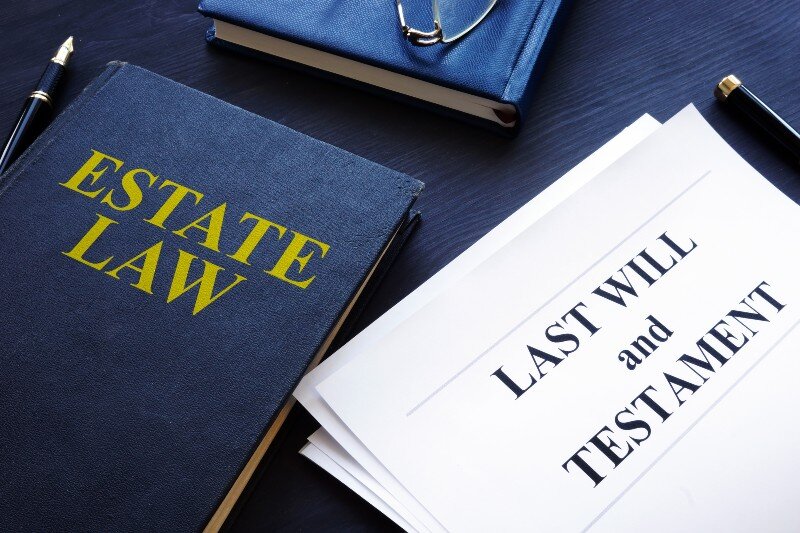
Losing a loved one can be devastating for family members. The surviving spouse and beneficiaries look to the last will of the decedent to learn their final wishes. An executor makes the process much easier. That is why it is in everyone’s best interest to do some estate planning and name an executor of the estate.
The executor pays any outstanding mortgage from the estate account when a house is involved. The executor will list the house as an asset and distribute it as the testator instructed. We will discuss what an executor cannot do and the things that he must do.
What Is the Executor of a Will?
An executor of a will is a personal representative the decedent chose before death. The executor of an estate has a legal fiduciary duty to protect the assets of the estate, which means that the executor must preserve the estate’s interests and the beneficiaries.
A family member or an estate attorney can complete the administration of the estate. An executor of a will must remain impartial and fulfill the deceased’s wishes. They must always consider the best interests of the estate while respecting the interest of the beneficiaries.
Generally, the executor is someone close to the decedent. This makes the task especially challenging because they are responsible for managing the estate while mourning a loved one and must deal with their grief while settling the estate. The job is much easier when the testator leaves detailed instructions.
An executor must avoid any hint of conflict of interest. The probate process ensures that an executor cannot mismanage the probate assets by requiring the executor to maintain a detailed inventory of all assets and transactions throughout the probate process. At any time, the court can ask the executor for the reasoning for any transaction.
Some of the executor’s duties include: assisting with funeral arrangements, presenting the will, identifying and collecting all estate assets, paying all outstanding debt, and distributing the remaining money and real estate.
The executor will ensure that all instructions for end-of-life celebrations are respected. Typically, when a testator has appointed an executor, they have also planned for their funeral or memorial service, and an executor will follow through with the testator’s wishes.
An executor’s first responsibility after the funeral service is to present the will to the probate court. The judge will issue an order allowing the executor to settle the deceased’s estate. This authority enables the executor to access any bank accounts and credit accounts.
Next, the executor must make a list of all estate assets. Assets can include bank accounts, real estate property, life insurance, and any retirement accounts.
When the deceased was a business owner, it is wise for the executor to seek legal advice from a probate attorney. The executor needs to get copies of the death certificate, which he will give to all creditors and banks.
The executor will use estate funds to pay any outstanding debts, such as income tax. The personal representative must file an estate tax return and pay outstanding balances.
One of the last duties of an executor is to distribute the estate assets to all beneficiaries. The executor will distribute any unlisted assets according to state law. Once the executor finishes distributing the assets, they will return to probate court and ask that they close the estate and release them as executors.
What An Executor of a Will Can and Cannot Do
An executor can act in the interest of the testator, which is the person who wrote the will. Once they present the death certificate and the will to the probate court, the executor manages the testator’s final affairs.
Anyone given executor responsibilities should frequently communicate with the beneficiaries. Open communication during this challenging time prevents any misunderstandings. The beneficiaries have a right to the details of all transactions and their inheritance.
People typically choose an executor that they trust. Executors should always act honestly, and certain things are unacceptable. The probate court is vigilant regarding the duties of an executor. The probate court can remove an executor if they fail to fulfill their responsibilities to the court’s satisfaction.
An executor cannot, under any circumstances, combine their money with estate funds, and all financial transactions must be completely transparent. An executor who appears to be self-dealing by somehow profiting from the estate account is guilty of embezzlement.
This level of vigilance is fundamental if the executor is also a beneficiary. The probate court’s supervision prevents any situations where a conflict of interest may arise.
The purchase of any real estate from the estate must be approved by the beneficiaries and reflect fair market value. Real property must be assessed, and the executor must ask for a reasonable price. When there are doubts, the executor should consult with a law firm specializing in probate laws to avoid any estate litigation.
An executor cannot change the testator’s wishes, and at times, this may be challenging. An executor cannot judge or question the testator’s wishes but must follow their instructions.
Executors cannot choose which debts to pay and must pay all outstanding bills to close the estate.
If the executor was to break any laws, there are tax consequences when selling an inherited house that the executor must pay.
Does the Executor of a Will Have the Final Say?
The executor of a will has great authority when managing an estate. Their fiduciary duty is to always act in the estate’s best interest, and they are responsible for fulfilling a person’s final wishes. An executor must be able to explain how any transaction is in the best interest of the estate.
The distribution of assets to beneficiaries is typically clearly explained in the will. An executor must follow these instructions and provide the probate court with a detailed record of all transactions.
The probate court is the authority that has the final say. The probate court ensures that the executor respects the law as they settle the testator’s estate.
There are situations where an executor may find that there are more debts than the estate can pay. In these cases, the executor can adjust the will to pay all debt. Executors have the authority to decrease inheritances or to sell significant assets.

What Happens if There Is a Will Dispute?
In Texas, contesting a will must be done within two years of being entered into probate. Contesting a will is a complicated legal process, and it is best to consult with an estate attorney familiar with estate law.
Beneficiaries cannot contest a will because they are unhappy with their inheritance. An executor might have to change the amounts of inheritances to pay off debt. As long as the executor can reasonably explain the changes, there are no grounds for contesting the will.
Someone wanting to contest a will must meet several requirements. Someone wishing to contest a will must be an interested party, and an interested party has a right or legal claim to the estate. Typically, heirs to an estate are related to the testator by blood, marriage, or adoption. They can also be close friends, but entitlement to the estate is much harder to prove.
The interested party must have grounds to contest the will. In Texas, there are several reasons the court will allow a person to challenge a will. It is advisable to consult with an estate lawyer, so everything is done correctly.
An interested party can contend that a testator revoked the original will by writing a new one or destroying the original. They can allege that the deceased did not have the mental ability to write a valid will. Lack of proper execution can also be used, which means that the will was not correctly written and witnessed.
A person can challenge a will if they believe there has been fraud. They must prove that the witness or testator’s signature is not valid. They can also argue that the testator suffered from undue influence from a family member. However, they cannot sell a house fast in Houston, even if they think it’s their property. They must follow due process if they think there was a mistake.
Another acceptable reason is if there has been a mistake. The testator must be aware that they are writing a will. A family member may have pressured them to write a will and supplied them with false information.
When an interested party feels they have grounds to contest a will, they must file a petition with the probate court. The burden is on the interested party to prove they have sufficient grounds. There will be a hearing involving evidence, witnesses, and experts. It is wise to work with a probate attorney who knows about estate law to ensure you have everything you need.
Depending on the court’s caseload, it could take months or even years for your hearing to occur. Sometimes, an out-of-court settlement is the best way to resolve the issue and avoid years of estate litigation.
Final Thoughts
End-of-life arrangements are not always easy to plan. You will want to choose an executor that you trust. You are handing over everything you have accumulated throughout your life to this person. They are responsible for settling your debts and distributing your assets to your loved ones.
Carefully consider the task that you are asking of someone. You want to ensure that you choose the right person for this critical task. Your executor will be your last connection with your family and loved ones.
If you’re the rightful inheritor of a property and are thinking about selling a house without a realtor, remember we buy houses Arlington and can put you in contact with cash home buyers in Texas.
